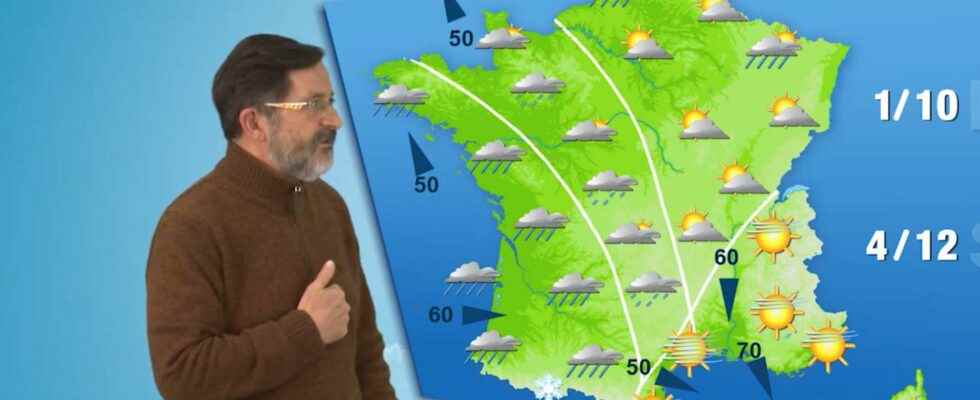Today, we know how to predict the weather reliably at around 10 days. But thanks to the improvement of models and satellite observations, this delay is gradually increasing. Will we ever be able to make a weather forecast several months in advance?
Most websites weather report today present forecasts up to two weeks. The Météo France site, for example, establishes seven-day weather forecasts and then a “trend” for the following seven days. On the Weather channel, you even have access to unlimited city-by-city forecasts with three scenarios ranked in order of probability. So what is it really? Can we rely on forecasts beyond a week?
In reality, everything depends on the scale at which we are located and the type of weather event. ” For a tornado for example, the trajectory forecast is limited to about ten minutes, explains François Lalaurette, director of operations for the forecast at Meteo France. For a storm crossing France, it’s about 3 days in advance, a heat wave period about a week, and we can tell several months in advance if a season will be rather hot or cold “. Accuracy also varies from place to place: In tropical areas, disturbances are more difficult to anticipate because they are of a more stormy and less organized than the disturbances of temperate latitudes. There are no depression/anticyclone systems, for example. »
Weather forecast: we gain one day every 10 years
At the level of weather forecast city by city, we have gained on average one forecast day every 10 years for the last 30 years », assures François Lalaurette. This means that the reliability of four-day forecasts today is equivalent to that of three days 10 years ago and two days 20 years ago. This fantastic improvement is the result of data more and more detailed on the parameters of wind, temperature, radiation, etc. coming in particular from satellites, combined with thetremendous increase in computing power. Because the interactions within theatmosphere are particularly difficult to model and anticipate; this is called the butterfly effect, theorized in 1969 by the mathematician and meteorologist Edward Lorenz. It showed how two nearly identical states of origin can diverge dramatically after two weeks due to a tiny initial disturbance like the flapping of a butterfly’s wings.
More than 15 days of reliable weather forecast?
But with data and models more and more precise, we now manage to reduce these initial inaccuracies. So can we imagine one day having reliable forecasts one or two months in advance? A study published in the Journal of the Atmospheric Sciences in 2019 sets a forecast limit of 15 days. ” Currently, in mid-latitudes, the 10-day time frame is the limit of practical predictability. Reduced uncertainty in initial conditions extends deterministic daily weather forecast times by up to 5 days “, predict the authors. But the possibility of improvement concerning small-scale phenomena such as thunderstorms remains, it, much smaller, they moderate. Another one 2018 studywhich analyzed various meteorological models, shows that the latter begin to diverge after 2 to 13 days and indicates a limit of predictability of the troposphere two to three weeks. For François Lalaurette, these studies should be taken with a grain of salt. ” In the 1950s, the limit was set at a day or twoexplains the specialist. A priori, there is no insurmountable ceiling “.
Seasonal forecasts: will summer be hot?
In the longer term, we have seasonal forecasts, accessible for example on the website of Meteo France. The latter gives an average climate trend over the next three months, on the scale of a large region such as Western Europe. Unlike forecasts for a few days, the information is neither detailed nor quantified but it tells us, for example, whether the weather will be rather hot and humid or rather cold and dry. It is developed by integrating the modelization of the oceans, which have a inertia much larger than the atmosphere. Seasonal forecasts are also better for temperature than for precipitationand concerning the temperature, better in winter than in summer. Finally, the medium-term weather forecast is more reliable in tropical zones, strongly subject to the oceanic influence, than in temperate latitudes such as in Europe.
Interested in what you just read?
